
The United States is attempting to seize a Russian-flagged oil tanker with links to Venezuela after a more than two-week-long pursuit across the Atlantic and as a Russian submarine and warship were close by, two U.S. officials told Reuters on Wednesday.The seizure, which could stoke tensions with Russia, came after the tanker, originally known as the Bella-1, slipped through a U.S.

MPC Container Ships (MPCC) has entered into contracts with Taizhou Sanfu Ship Engineering in China for the construction of six 3,700 TEU container vessels scheduled for first delivery in second half of 2028.Each vessel will operate under a 10-year time charter, with extension options, to a top five liner company.
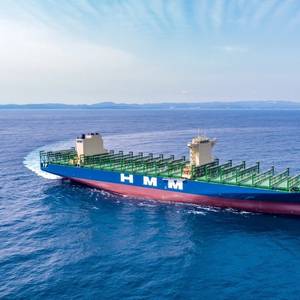
HD Korea Shipbuilding & Offshore Engineering (HD KSOE), the intermediate holding company for HD Hyundai's shipbuilding business, has signed a shipbuilding contract with HMM for eight 13,400-TEU dual-fuel container ships.The vessels ordered are 337 meters in length, 51 meters in width, and 27.9 meters in height.
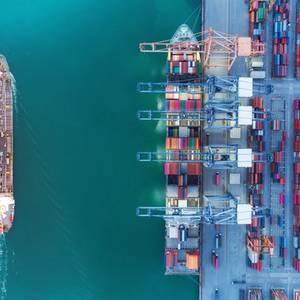
MPC Container Ships (MPCC) has entered into contracts with Jiangsu Hantong Ship Heavy Industry in China for the construction of four 4,500 TEU container vessels, scheduled for delivery starting first half of 2028.The contract price per vessel is $58 million and the agreement includes options for two additional vessels at the same price.
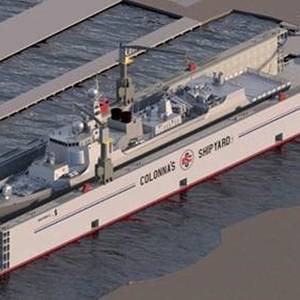
Colonna’s Shipyard, Inc. (CSI) will invest $70m to acquire its fourth drydock, expected to have a lifting capacity of 25,000 tons and slated for delivery in the first half of 2028.“This new drydock acquisition is a testament to our continued dedication to innovation, quality service, and our steadfast investment in the future,” said Randall Crutchfield, Chairman & CEO, at Colonna’s Shipyard, Inc.
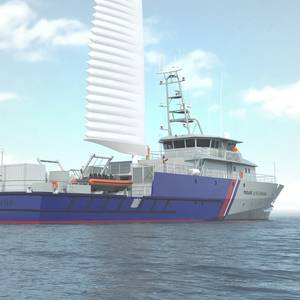
The next generation offshore patrol vessel (OPV), featuring hybrid propulsion and wind sails, has started taking shape as the first steel is cut for the Directorate General for Maritime Affairs, Fisheries and Aquaculture (DGAMPA) vessel, designed by the SOCARENAM-MAURIC consortium.
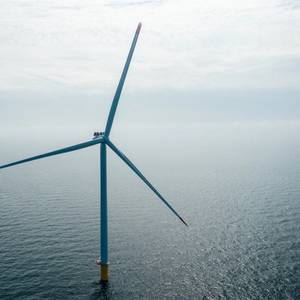
Danish offshore wind installation firm Cadeler has signed a firm contract with Ocean Winds for the transportation and installation of 26 Siemens Gamesa 14 MW offshore wind turbines at the BC-Wind offshore wind farm in the Polish Baltic Sea. The signing of this firm contract follows the Vessel Reservation Agreement (VRA) signed in February 2025 between Cadeler and Ocean Winds.
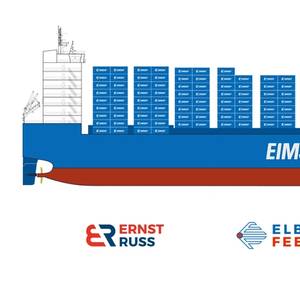
ElbFeeder, a joint venture of the Icelandic transportation company Eimskip and German listed ship-owner Ernst Russ, signed contracts for a pair of 2,280-TEU container vessels with the shipyard China Merchants Jin Ling Shipyard (Nanjing) Co. Ltd. The newbuildings will be an addition to the ElbFeeder joint venture and expand it to a total of nine vessels.
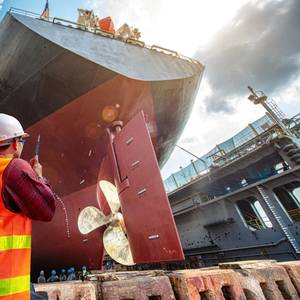
Chinese shipyards’ market share has dropped from 72% to 52% in the first half of 2025 amid growing concerns over the impact of US Trade Representative (USTR) port fees on Chinese ships, according to the latest report from BIMCO, the world’s largest shipping association.USTR port fees, set to take effect in October 2025, will impact both Chinese owners and operators

The first Russian-built ice-class tanker for liquefied natural gas is expected to go into operation in the second half of this year at the Arctic LNG 2 plant, Interfax news agency quoted tanker group Sovcomflot as saying on Wednesday.International sanctions over Ukraine have led to a shortage of tankers in Russia that can cut through thick ice

British maritime security firm Ambrey reported on Tuesday that the paramilitary Rapid Support Forces (RSF) had launched a drone attack on facilities at Port Sudan, targeting the container terminal and escalating a two-year-long conflict.Ambrey said it had obtained video footage showing damage to the terminal and civilian infrastructure, reportedly leaving the city without power.
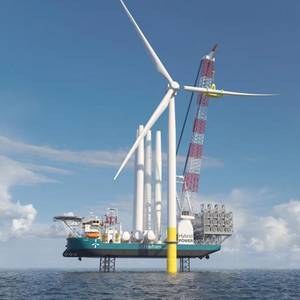
Belgium-based offshore installation services company DEME has completed the acquisition Havfram, an offshore wind installation contractor based in Norway, in a deal valued at approximately $1.02 billion (€900 million).The transaction, first announced in April 2025, has passed all customary closing conditions.